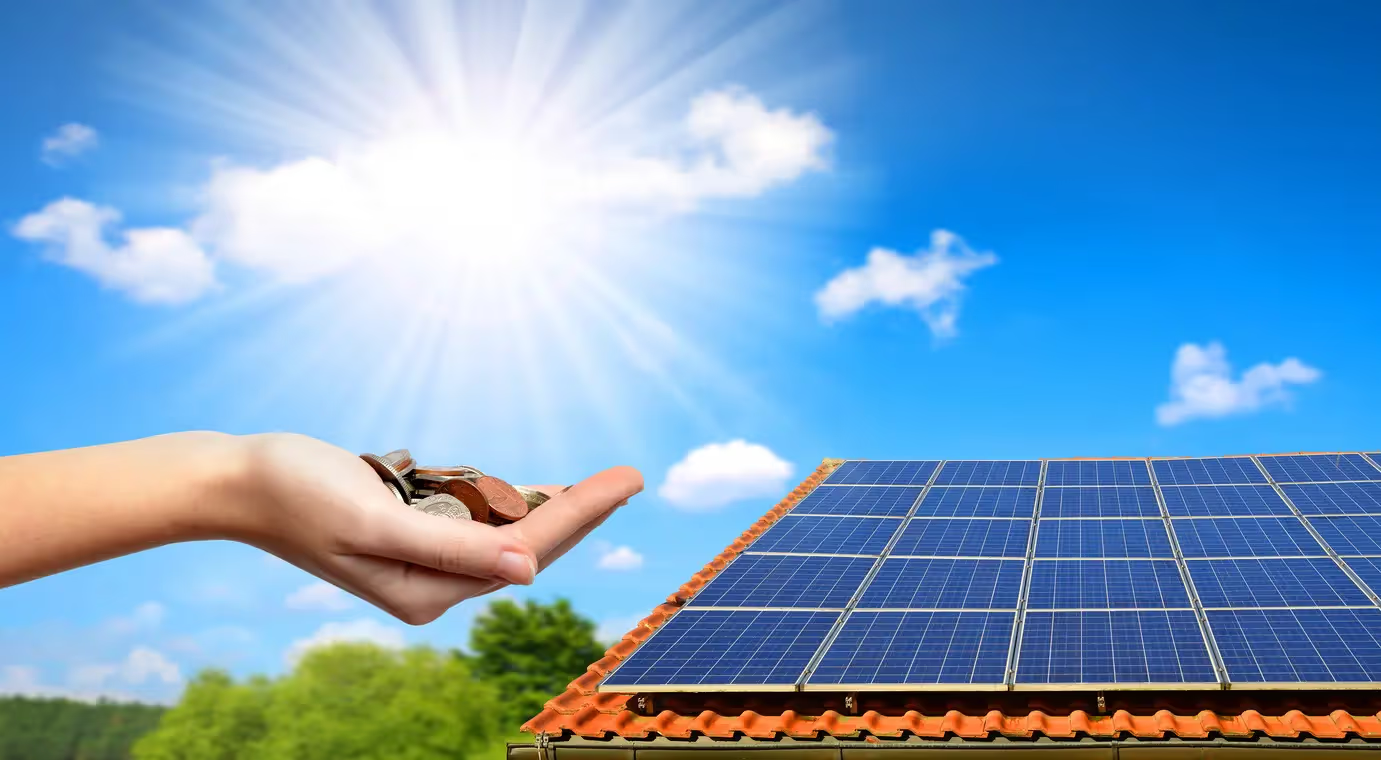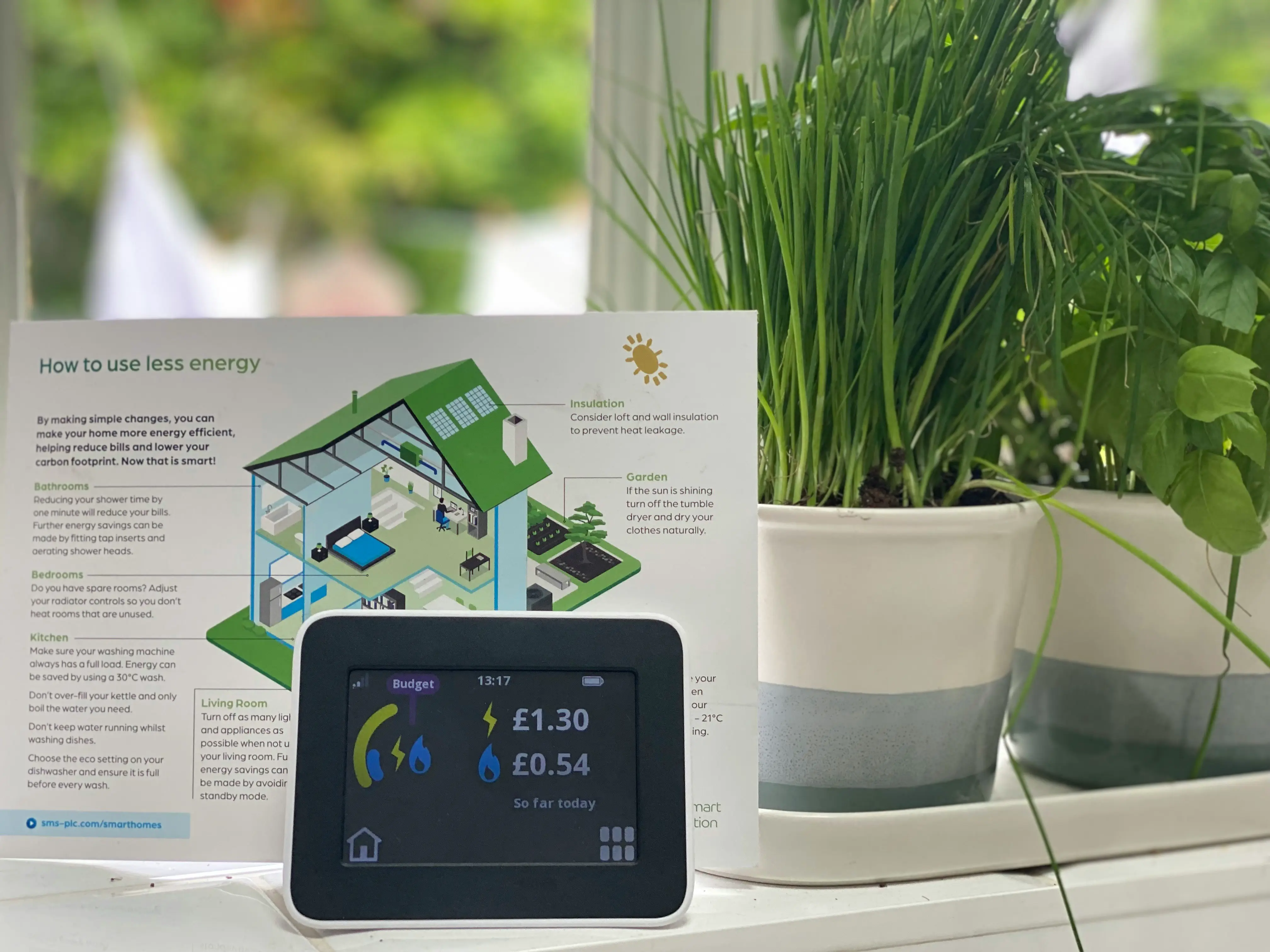
Solar panels are a substantial financial investment. The Smart Export Guarantee (SEG) is a way to earn a small income from this investment. Below, we’ll explain:
Looking for solar panel installation quotes with fixed prices on-screen and estimates on how much your SEG payments are likely to be? Use our clickable solar panel tool here.
The Smart Export Guarantee is a scheme created by the UK government back in 2020. It’s another government incentive, to help the UK hit its net-zero target.
Via the scheme, households will get paid for all exported electricity.
Solar panel installations generate electricity that can power your home directly, or, be stored in a solar storage battery for use at a later date.
There are likely still times when your solar panel system is producing more electricity than your household can use / store. Without being connected to the grid via the SEG scheme, this electricity would simply go to waste.
However, when connected to the grid, you can export this electricity to an energy provider. Different providers will offer different tariffs and different export rates. You’ll get small monthly payments, which can quickly add up over the year, helping to make solar panels a potentially worthy investment.
Green energy solutions that can benefit from the Smart Export Guarantee include the likes of:
More details explaining the SEG scheme can be found on .GOV and Ofgem websites.
Solar panel systems convert sunlight into energy. The inverter converts your electricity so it's then usable in the home.
At this point, you'll use what you can as it's produced. If you have a storage battery, you'll store what you can for use at a later date. Any excess electricity can be sold back to your energy supplier, based on a pre-agreed tariff.

Remember, different electricity suppliers have different SEG tariffs. So, checking the combination of their SEG tariff (what you'll get paid) and current electricity tariff (what you'll pay for any electricity you need), is important when choosing a supplier.
One thing worth considering is, you will need to get a smart electricity meter installed; some suppliers will install one free of charge. Without a smart meter, it's difficult for your energy supplier to accurately calculate the electricity they're receiving from your property.
And that's it. You'll get paid either monthly, quarterly or annually (depending on the supplier), for any electricity produced.
To be eligible for the SEG scheme, you’ll need to be using a system that meets .GOV guidelines. All of the solar panel systems we install meet these guidelines, and you can find the perfect system for your property using our clickable tool here.
If you’re looking elsewhere at a system, one important point to consider is that your installer needs to be part of the Microgeneration Certification Scheme (MCS).

MCS is the body responsible for the safety and quality of green energy installations in the UK. If you use an installer that doesn’t have accreditation, you won’t qualify for the SEG scheme and therefore, are going to lose out on SEG payments and may increase the payment period for the initial investment in solar.
As detailed on the .GOV site, there are other options, such as an installer that is part of the Flex-Orb scheme. Flex-Orb covers guidelines for installers that fit solar PV systems, storage batteries and EV charging stations.
All of our solar panel installers are MCS qualified, so your install will be eligible for SEG payments.
You can use our solar panel tool here to get a quote on a system that’s SEG eligible!
Whilst the SEG scheme is great, you’ll want to utilise as much of the electricity as your solar panels produce as possible. The simple reason being, the rate you get paid per kWh via the SEG scheme will (generally) be lower than what you pay per kWh if you have to buy it back from the grid.
This is why a lot of households choose to install a solar storage battery alongside their system. By using a solar battery, you’ll be able to stash any excess electricity during peak production hours (10am-4pm), to be used when you are home in the evenings and your system isn’t as productive.

Prices for storage batteries start at £2,495 for a 5.3kWh unit, as part of a complete solar panel installation. We also provide larger 10.6kWh (£3,745) and 15.9kWh (£4,995) for those with substantial excess when it comes to electricity production.
Not sure which battery you need? Speak to our solar experts here.
Or, use our clickable solar panel installation quotation tool here. There, you’ll be able to toggle between our 5.3kWh, 10.6kWh and 15.9kWh batteries to determine which gives your household the best balance of price and electricity self-sufficiency.
Alternatively, you can read our guide covering whether solar storage batteries are worth it here.
First, you’ll need to be using a supplier that offers an SEG tariff (not all energy suppliers do). You don’t need to use the same supplier that you buy electricity from.
The current list of mandatory SEG tariffs include:
You’ll need to contact your supplier to determine their exact application process, as each one will vary from the next.
However, for any household using Dwellow for their solar panel installation, we’ll handle the application on your behalf!
Get prices on-screen for your solar panel system here (inclusive of an application for SEG payments to your operator).
For solar panels, the limit for the Smart Export Guarantee is 5MW. With most residential systems being in the 5kW-15kW range, you will qualify. Even most commercial premises will have a system that's well below this limit.
The current best SEG rates at time of writing come from Good Energy (25p) and EDF Energy (24p).
Payment frequency for both is every 3 months. Many others pay on a frequency of 6-12 months.
Energy providers regularly change their rates, so it's worth doing an export rate comparison across multiple suppliers when you apply.
You won’t qualify for SEG payments without a smart meter. Without a smart meter, your energy provider is not going to know exactly how much electricity you're exporting to them.

Even if you’ll be eligible for Smart Export Guarantee payments, we’d suggest a small solar storage battery as a minimum.
A solar storage battery is going to dramatically reduce your reliance on your energy supplier and you could time when you want to discharge the battery to get better export rates on varaible tariffs.
British Gas operates a Smart Export Guarantee scheme, like all major UK energy suppliers.
As mentioned on this page, you can export excess electricity produced by your solar panels and earn a small income.
Yes, most UK energy suppliers will require proof of a valid MCS installation certificate for your solar panels. You’ll also need to have a smart meter installed in order to get SEG payments.
Use our clickable solar panel tool to determine accurate energy bill savings based on a system that’s most suitable for your property. There you’ll be able to see potential savings for systems with or without a solar storage battery.
Try our free quote tool. You'll have your personalised quote in under a minute.